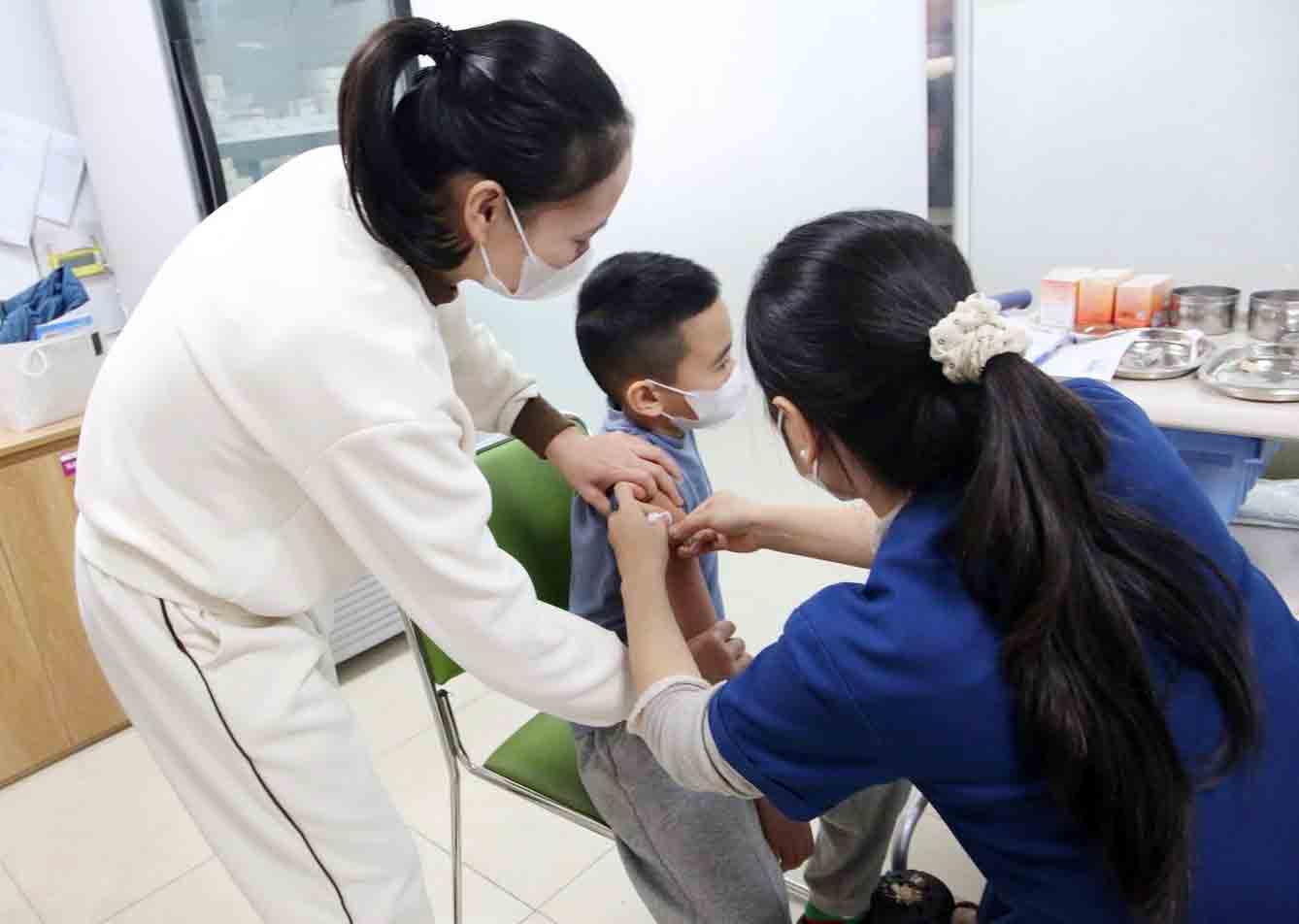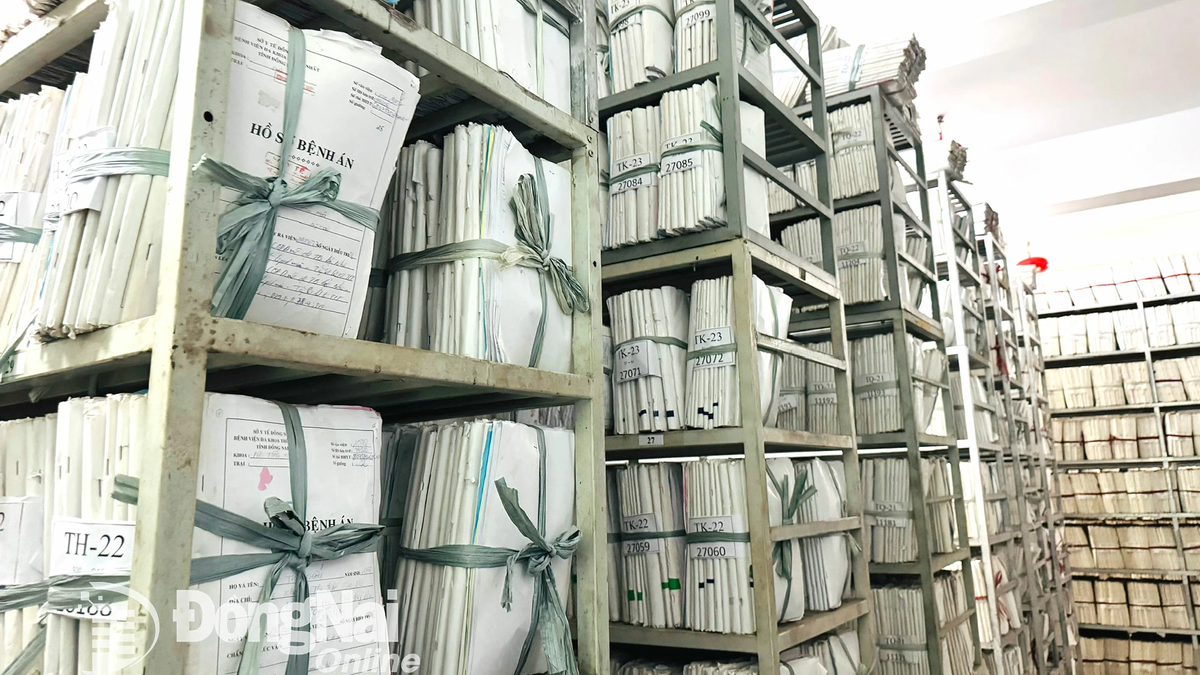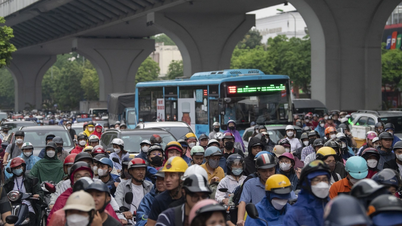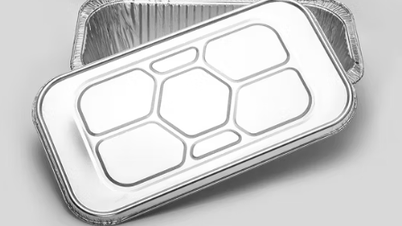The patient, residing in Tam Nong District (Phu Tho), was transferred from the district medical center with a diagnosis of respiratory failure, pneumonia, and positive influenza A. About 4 days before being admitted to the hospital, the child had a high fever, worsening cough and wheezing, and difficulty breathing, so the family took him to the district medical center. Due to worsening difficulty breathing, the patient was intubated and transferred to Phu Tho Provincial Maternity and Pediatrics Hospital. Here, the child was diagnosed with acute respiratory distress syndrome (ARDS), severe pneumonia on the background of influenza A, and was admitted to the intensive care unit and put on a ventilator.

Fully vaccinate children and take disease prevention measures as recommended by the Ministry of Health.
Resident Doctor Nguyen Vo Loc, Deputy Head of the Department of Intensive Care and Anti-Poison, Phu Tho Province Maternity and Pediatrics Hospital, informed: With an active treatment regimen, combined with antibiotic treatment and respiratory physiotherapy, the child's respiratory failure condition has improved significantly. After 18 days of treatment, the child's health is stable and he was discharged from the hospital.
According to Dr. Nguyen Vo Loc, acute respiratory distress syndrome (ARDS) is one of the severe complications of influenza A, with complex developments. This is a syndrome of acute damage to the pulmonary alveoli and capillaries, characterized by rapidly progressing respiratory failure. In many cases, ARDS causes a serious drop in blood oxygen, which needs to be detected and treated promptly.
Do not self-treat your child.
According to records at Phu Tho Province Maternity and Pediatrics Hospital, recently there have been cases of children infected with influenza A who had to be hospitalized, including some cases with very serious conditions, complications such as pneumonia, myocarditis, cerebral edema, severe liver damage, etc. Therefore, doctors recommend: When children have the flu, parents need to take them to specialized medical facilities for timely examination and treatment. It is necessary to pay attention to keeping children warm, maintaining personal hygiene by disinfecting, washing hands regularly, wearing masks when going out, and limiting contact with people suspected of having the flu.
At the leading hospital specializing in infectious diseases, Dr. Dang Thi Thuy, Head of the Department of Pediatrics, Central Hospital for Tropical Diseases, said: The initial symptoms of influenza A infection or seasonal flu in general and infections with other viruses that cause respiratory infections are similar. Children often have fever, inflammation of the respiratory tract (such as coughing, sneezing, runny nose), sore throat..., parents often find it difficult to distinguish whether their child has influenza A or not.
Therefore, during the current flu season, in addition to the initial symptoms above, it should be noted that children infected with influenza A often have a high fever of 39 - 40 degrees Celsius, congested eyes, congested throat, redness all over, fatigue, poor appetite, fussiness, and in severe cases, difficulty breathing, pneumonia, bronchitis, etc.
"When children show signs of high fever and respiratory tract infection as mentioned above, parents need to take their children to the nearest medical facility for examination and diagnosis, from which doctors will advise on appropriate care and treatment for each child's condition," noted Dr. Dang Thi Thuy.
According to Dr. Thuy, most children with seasonal flu who are diagnosed with simple flu will be prescribed medication for outpatient treatment. Cases showing signs of respiratory tract infection complications such as bronchitis, pneumonia, and bronchiolitis will be prescribed hospitalization for treatment.
There is currently a guideline for the diagnosis and treatment of seasonal flu from the Ministry of Health, with specific medications prescribed for specific cases, and a guideline for symptomatic treatment measures and cases of seasonal flu with complications.
"When children are sick, parents need to follow the doctor's instructions, give their children plenty of water, eat liquid and easily absorbed foods, take fever reducers, symptomatic medications (cough medicine, cold medicine to relieve nasal congestion), vitamins (especially vitamin C) to help increase resistance... Medicines used must be prescribed by a doctor, parents should not use them on their own," Dr. Thuy especially noted.
Source: https://thanhnien.vn/ngan-ngua-bien-chung-do-cum-a-tren-tre-nho-185250213165101057.htm




































































































Comment (0)